2020 will be remembered for the damaging global impact of the Covid19 pandemic. Millions of people have experienced illness, loss of earnings or severe restrictions of living under lockdown.
Cybersalon has started the year with a physical event in Newspeak House (London), but had to adapt quickly and move to virtual Salons from April 2020, continuing online for the next 7 events. As the pandemic drove all of us to digital world, we shifted Salon’s focus from Games for Good to remote working, online schooling, auto-policing (urban Race Recognition) and exercising our democratic rights thru digital democratic processes. We also moved online to complete our projects to EU, games for Google and deliberative local democracy tools for Nesta (Game Flourish).
January – Tend & Befriend: the first event of 2020 in our series Games for Good
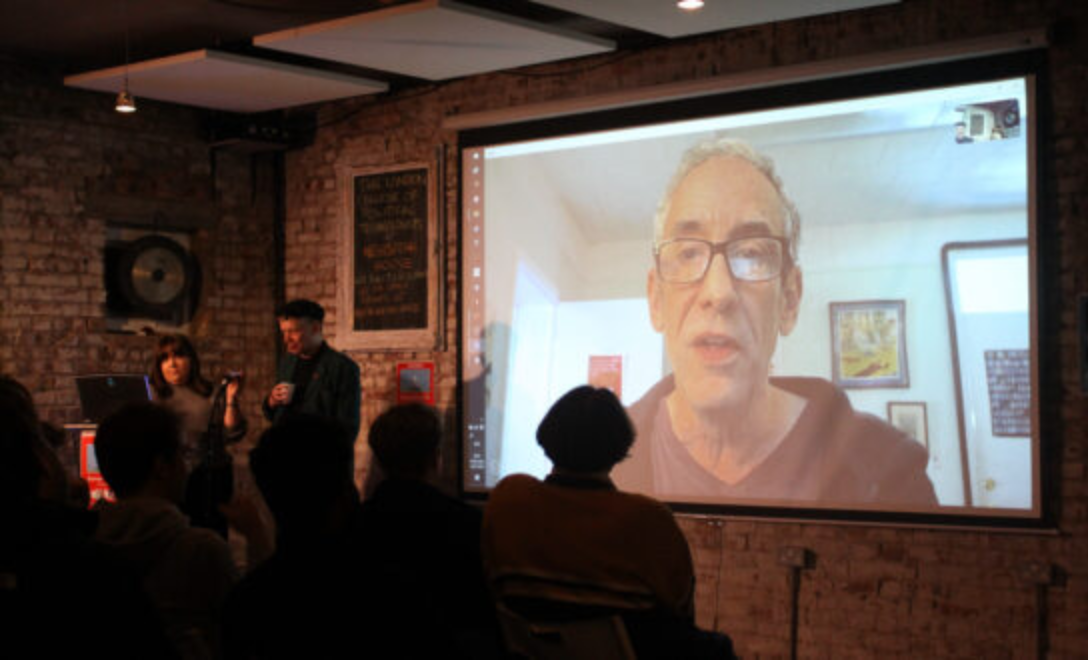
The year began with the first of what would be many events with Douglas Rushkoff, when we looked at controversial issue if games should be used for changing behaviour.
Should it be a ‘pure play’ as Douglas argues, or should the games be charged with helping us for example in changing prejudices about ethnic minorities?
We have just completed an WhatsApp game for Google, titled On The Surface, which was well received by teenagers as a way to raise debate about race and everyday bias. Dr Richard Barbrook and Dough Rushkoff debate pros and cons of games-with-agenda:
Watch Doug Rushkoff in interview with Dr Richard Barbrook here
Short transcript from the interview here
Summary of Eva Pascoe and video on 4 games other we reviewed (Eliza, Tacoma, StarDew Valley, Journey)
April – Games for Survival: can games help us survive Covid19?
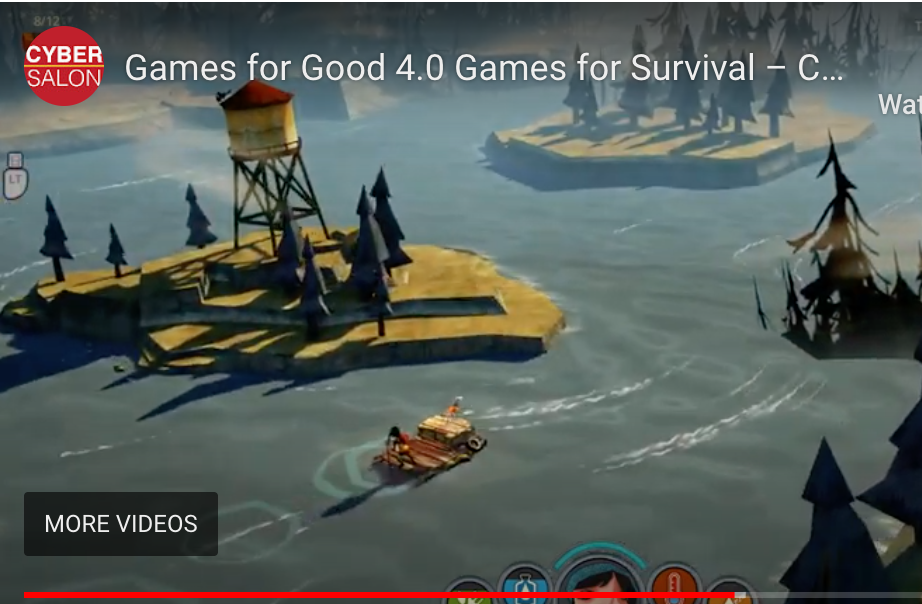
With the initial outbreak of the novel Corona virus forcing us to move online, we have researched which games can give us tools or improve our mindset to survive lockdown. We also looked at games that can help to make online teaching more engaging, as not even the keenest student can deal with hours of Zoom every day!
We evaluated at Second Life and VR chat for suggestions for edu-tech (reviews by Stefan Lutschinger, Jon Bains and Simon Sarginson)
The game that caught our eye as particularly useful for Coronavirus survival strategy was The Flood in the Flame, demo-played and reviewed beautifully by Simon Sarginson (former dev on Batman: Arkham). This is a game of survival, but also patience, determination and the most important, about hope.
Notes and key points on blog here
Extra lockdown hacks here from Eva (who had experienced 2 previous lockdowns in communist times) here
June – Remote work: how to teach your staff (and yourself) about digital skills?
As the coronavirus continued its spread across the world, we looked at how Cybersalon can support the efforts to move work from physical offices to effective online operations. Jointly with Capacity Ireland and four EU training organisations we have co-designed a full digital training program for Digital Nomads, the newly created millions of home workers. We completed the key phase in May and launch the program, now titled DigiBlox.org, as the new Digital Course for EU to replace Computer Driving Licence.
Douglas Rushkoff was our main guest, bringing his insights into our current digital overdose and recommendations for avoiding the traps of ‘gloom and Zoom’, ‘Zoom tunnels’. He spoke on how to function online but also be able to come up for air from time to time and keep life-work balance.
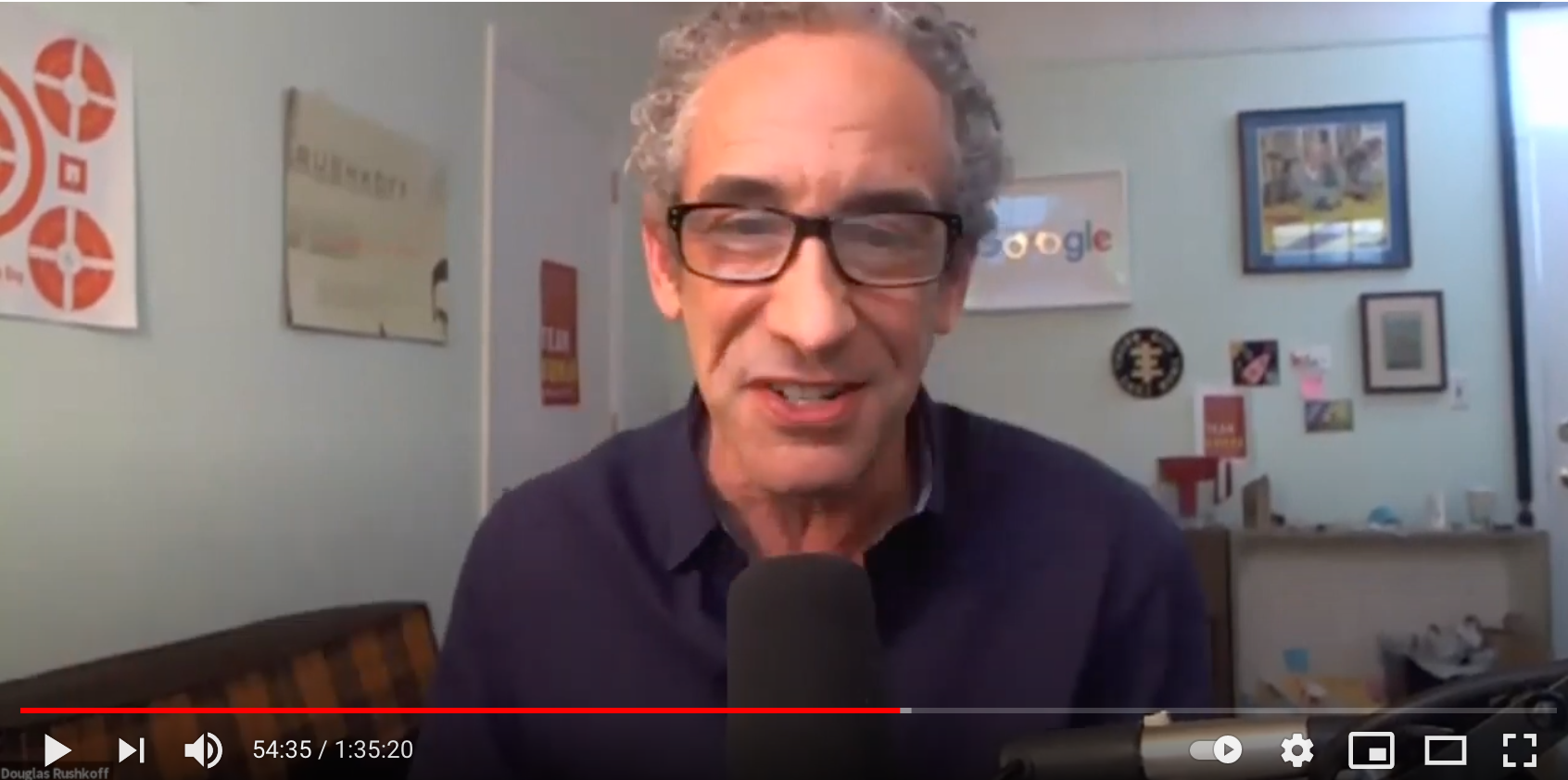
Here is the video from the event and Doug, Eva and Georgina chatting about this Brave New World of remote work, risks and opportunities
We worked on this program with a number of different European organisations, jointly funded by Erasmus training fund – read about our experiences from this process and transcript from the event here
July – Track and Trace or duck and dive: what is wrong with UK app?
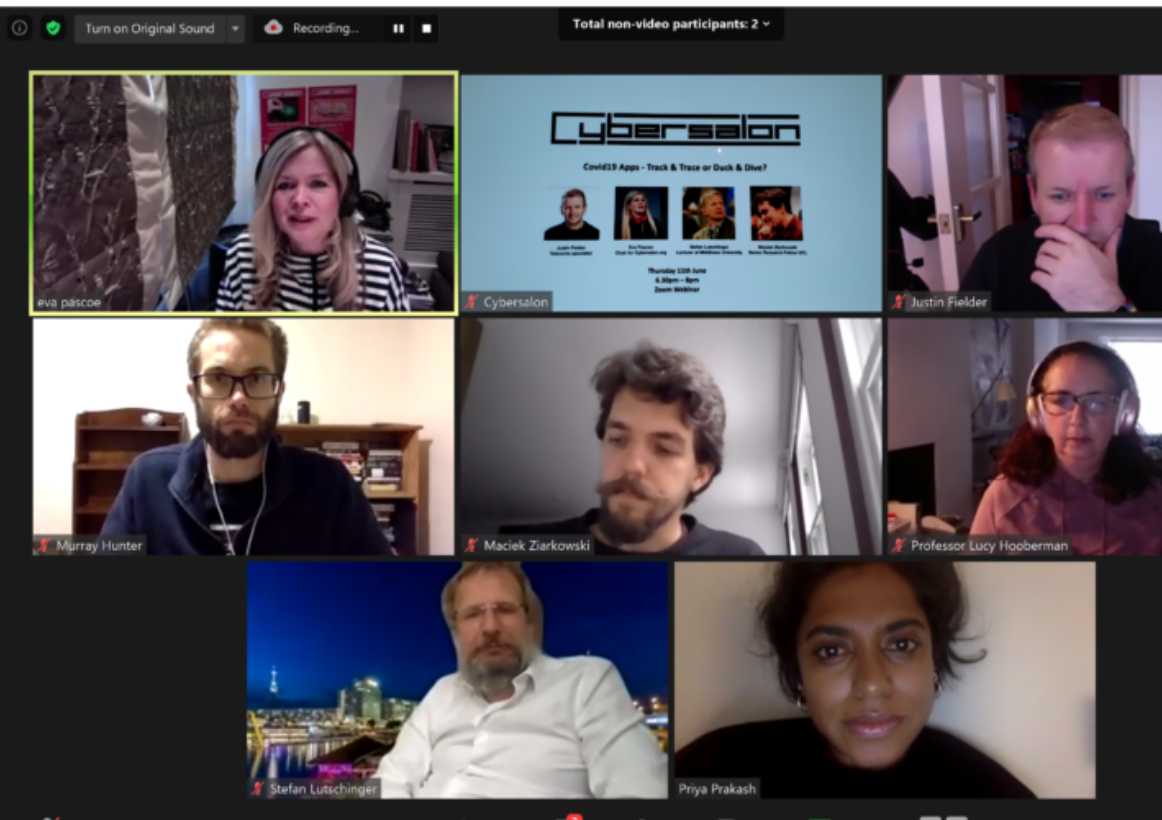
With the global pandemic putting the need for fast, reliable and secure Track And Trace in focus, a number of Cybersalonistas and wider tech /UX partners have examined the problems with UK government approach to creating the Track and Trace app.
We have invited Priya Prakash (Design for Social Good), Justin Fielder (ex CTO of Easynet and networking engineering expert), Murray Hunter (South Africa human rights expert) as well as international group of practitioners to diagnose the issues plaguing deployment by UK NHSX team.
You can watch the event here
Transcript and key findings summary here
June 2020 – The Future of Money: Time for London Coin and UBI?
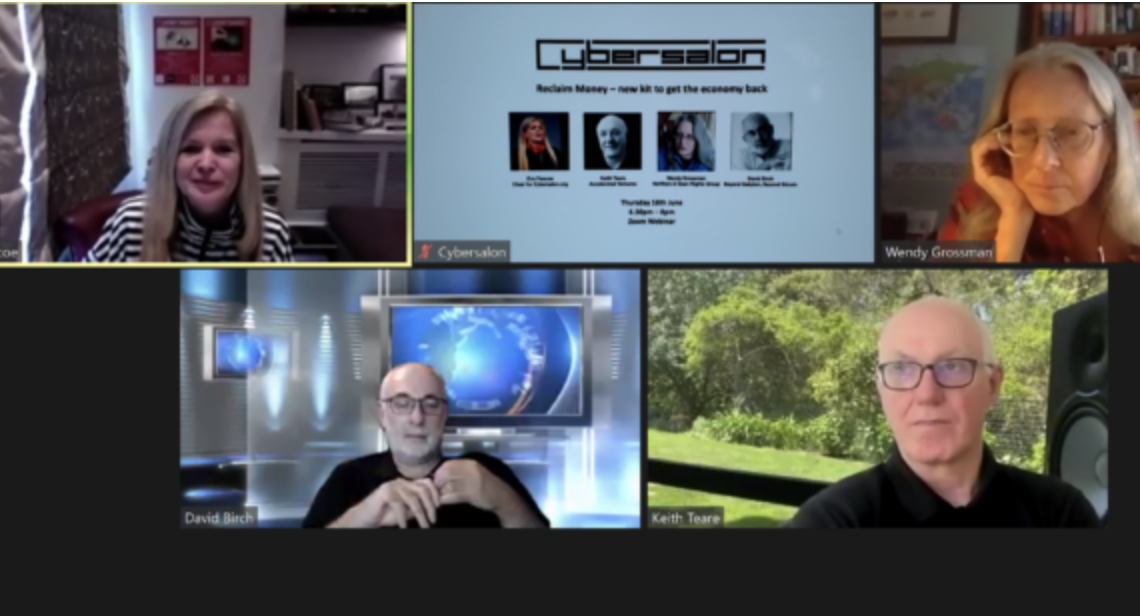
As the corona virus marched on, devastating economies of developed and developing countries alike, putting millions out of work, we looked at how new ways of payments can support the newly unemployed. Is UBI the right answer? Should cities go back to their own money like London Coin to rebuild their badly damaged local economies?
We invited Keith Teare (Palo Alto Accelerator), David Birch, author of “Beyond Babylon, Beyond Bitcoin” to share their insights of paths available to governments world-wide.
You can follow the podcast here
And read the key takeaways here
July – Flourish!
Review of our game made for Nesta made to help Local Government teams to discuss Local Economic Policy ideas – game information here
Make your town Flourish! Why we made a board game to discuss local economic policy ideas.
September
This year the anniversary of founding of Cyberia Café, world’s first Internet Café was celebrated online – here is Eva’s blog reflecting on the legacy
October – Reclaiming Afrofuturism: beyond Black Panther
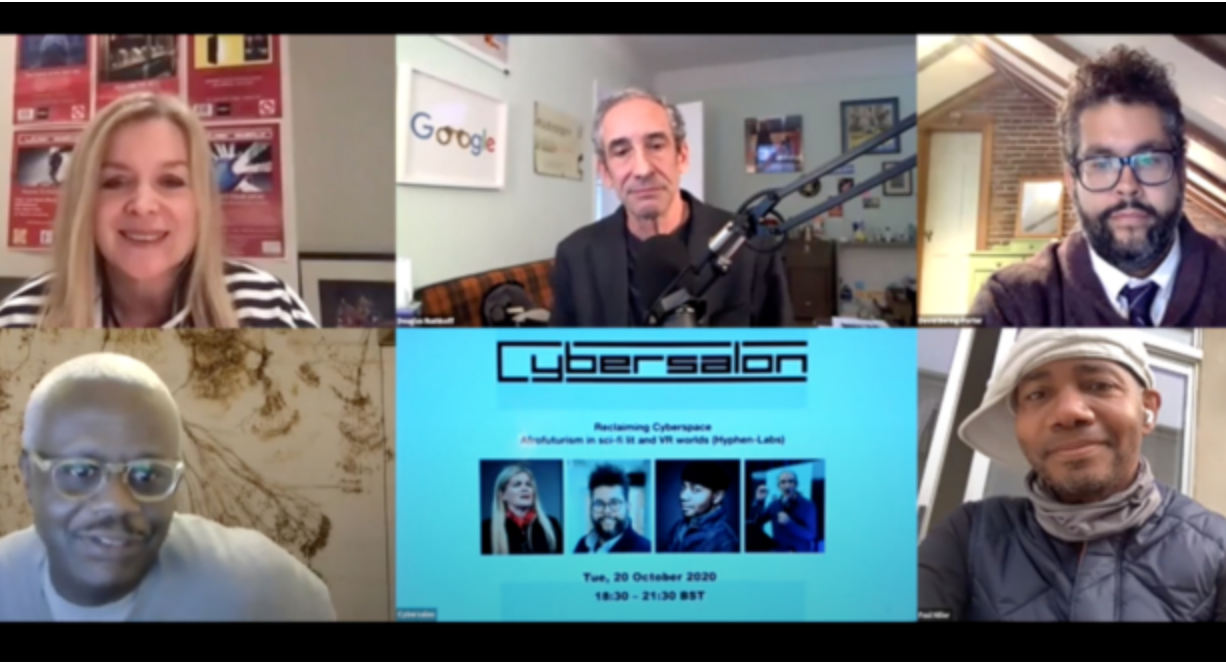
Speaking at the kick off of Black History Month, Paul Miller (aka DJ Spooky) and Derek Richards with friends discussed the history of Black Futures. How sci-fi from decades ago can teach us about re-imagining new relationships and new paths? How sci-fi lit and movies re-framed social change?
Watch/listen to the podcast here
The key takaways are here
November – Reclaim Your Face: who owns your biometric data? Biometrics in Urban Jungle
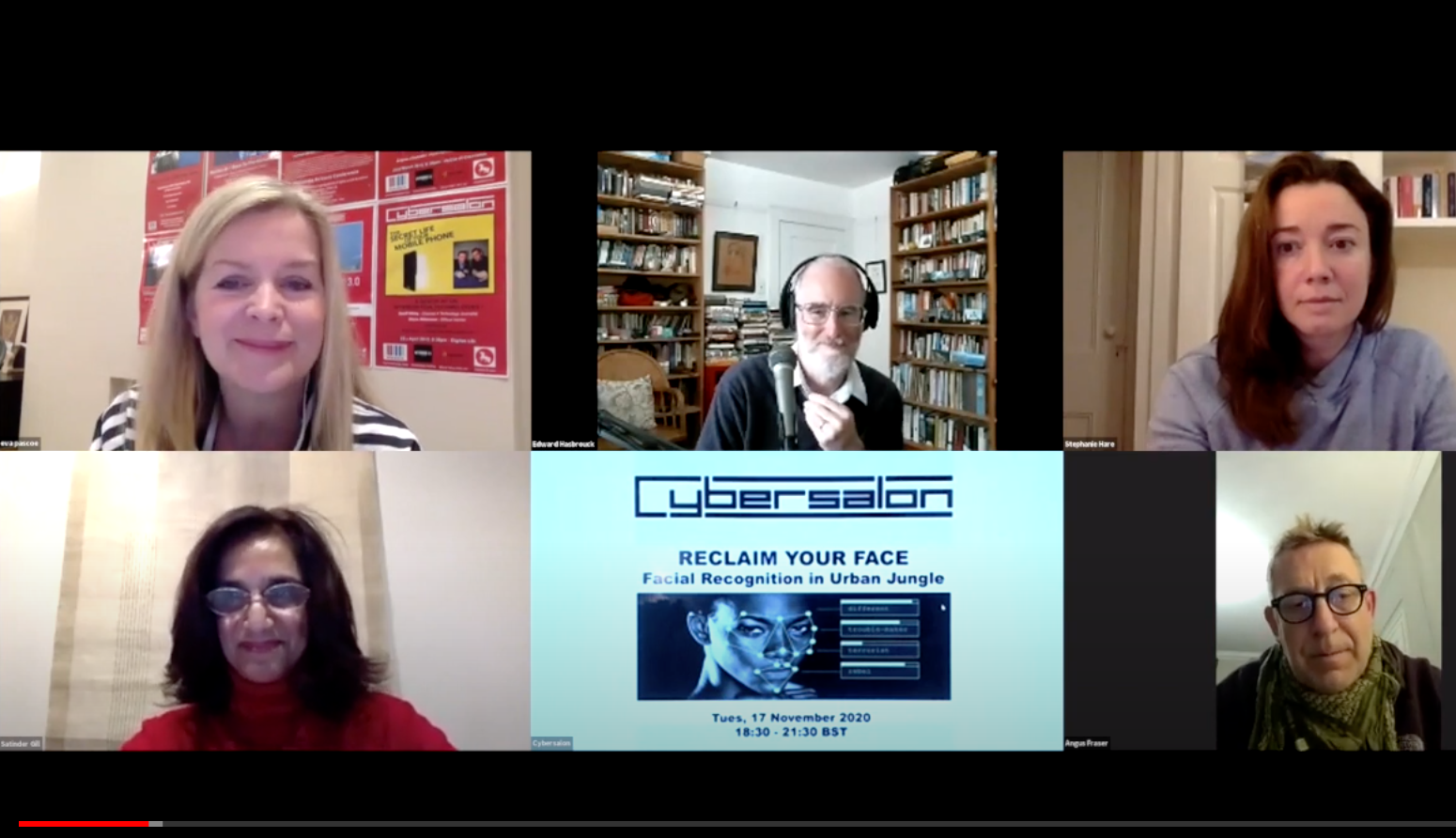
In November we took an incisive look at the role of Facial Recognition in urban policing in London, New York and other mega cities. The indiscriminate use of AI in Face Recognition has prompted civic society and data privacy activists world-wide to demand change, and protect biometric personal data. A few of US Cities have expressed unease with the risks of false positives and impact on human rights. London, as always, is rolling out FR in an aggressive campaign to put a camera on every ‘smart’ street lamp.
We invited start ups offering Face Mask compliance monitor (Gus Fraser) and AI-Bar where AI keeps your face in ‘virtual queue’- skipping the need to push and shove around the bar- both examples use ‘Facial Recognition” for good. We also had a panel of experts, cybersec writers and academics to challenge the current Wild West of legislation around face data/biometrics in the city.
Panelist: Dr Satinder Gill (Cambridge Uni) who shared insights on high risks of false positives for women of colour, and Stephanie Hare (@hare_brain) to comment on impact of illegal face data capture on teenagers and young people. Ed Hasbrouck (USA) shared his knowledge on mandatory FR on the airports and the dilemma of private-public access to face data. Bottom line – this is going to get worse unless we step up the fight as too many organisations have easy access to your face data.
You can watch/listen to the podcast here
Key take-aways here
December – Digital Sovereignty: who should protect your personal data?
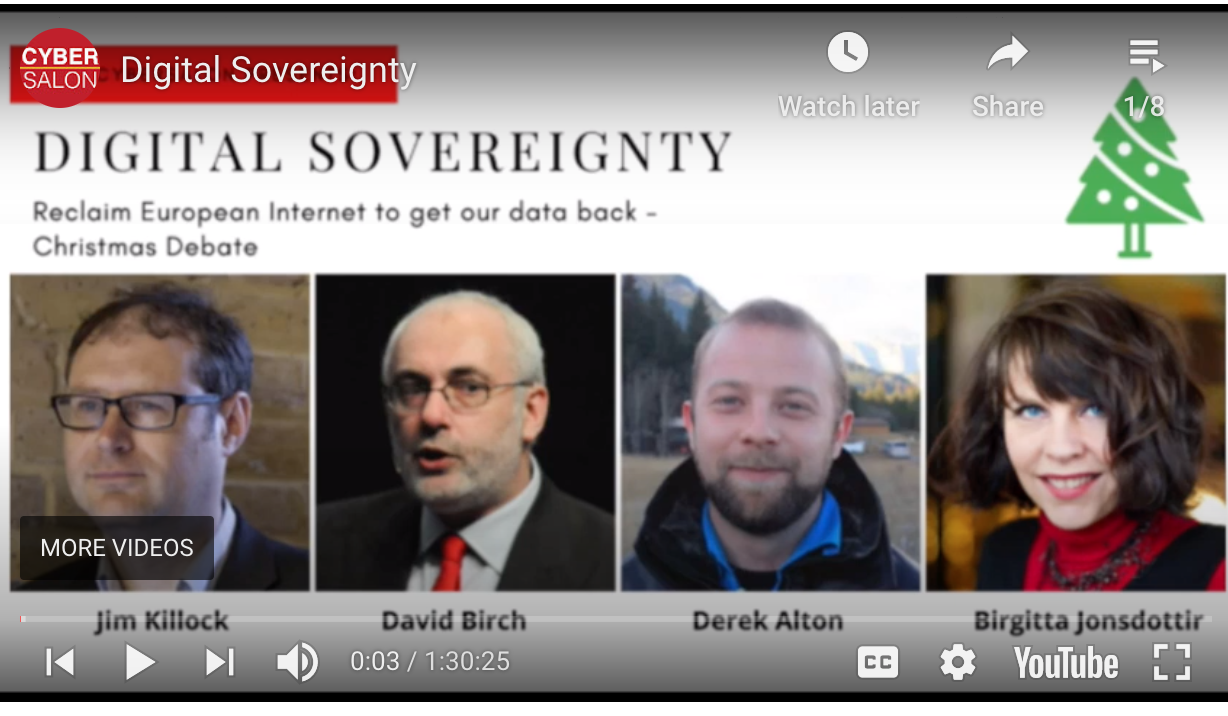
10 months into coronavirus and digital infrastructure is more important than ever. But who should own the data that we provide using online tools – the current direction is for governments to hand over tech to private companies like Google, Microsoft or Amazon (AWS).
However, increasing number of cybersecurity incidents pestering those companies creates a timely reminder that ultimately digital infrastructure should be build by the state and the data should belong to us all. How do we get there? Which country is ahead? Could we become digital citizens of Iceland?
Watch/listen to podcast here and read the summary here
Happy New Year to all our members, collaborators, research and academic partners from many parts of the world.

Thanks to all our sponsors for 2020:
Middlessex University, Hydro66.com (Green Energy Data Centres) , TheRetailPractice.com
Scurio (Cybersecurity for everyday needs), Digital Liberties Coop, Westminster University, Newspeak House
For more info contact: [email protected]
For more resources: Cybersalon.org




